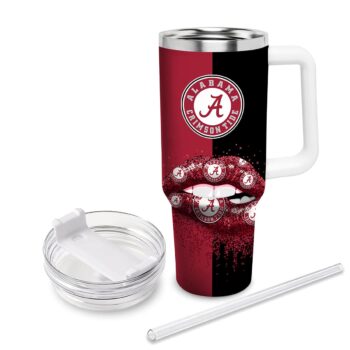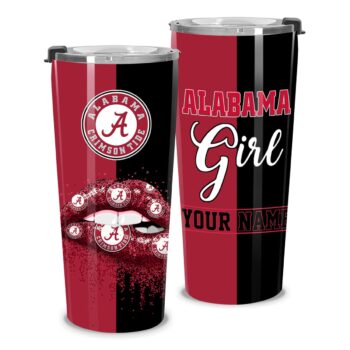-
Beach ville redRated 5.00 out of 5$59.00
Lorem Ipsum is simply dummy text of the printing and typesetting industry. Lorem Ipsum has been the industry’s standard dummy text ever since the 1500s.
97 in stock
-
Black T-shirt short sleeves
$21.00Original price was: $21.00.$19.00Current price is: $19.00.Lorem Ipsum is simply dummy text of the printing and typesetting industry. Lorem Ipsum has been the industry’s standard dummy text ever since the 1500s.
-
Classic T-shirt short sleeves $17.00
Lorem Ipsum is simply dummy text of the printing and typesetting industry. Lorem Ipsum has been the industry’s standard dummy text ever since the 1500s.
-
Colorful Jacket $29.00
Lorem Ipsum is simply dummy text of the printing and typesetting industry. Lorem Ipsum has been the industry’s standard dummy text ever since the 1500s.
-
Elessi Knit CoatsRated 5.00 out of 5$45.00
Lorem Ipsum is simply dummy text of the printing and typesetting industry. Lorem Ipsum has been the industry’s standard dummy text ever since the 1500s.
100 in stock
-
Elessi young coats $69.00
Lorem Ipsum is simply dummy text of the printing and typesetting industry. Lorem Ipsum has been the industry’s standard dummy text ever since the 1500s.
-
Gray T-shirt for men $16.00
Lorem Ipsum is simply dummy text of the printing and typesetting industry. Lorem Ipsum has been the industry’s standard dummy text ever since the 1500s.
65 in stock
-
Hands on mini bags
$35.00Original price was: $35.00.$29.00Current price is: $29.00.Lorem Ipsum is simply dummy text of the printing and typesetting industry. Lorem Ipsum has been the industry’s standard dummy text ever since the 1500s.
-
Lightly jean shirt Fertiti $41.00
Lorem Ipsum is simply dummy text of the printing and typesetting industry. Lorem Ipsum has been the industry’s standard dummy text ever since the 1500s.
98 in stock
-
T-shirt caro lines $25.00
Lorem Ipsum is simply dummy text of the printing and typesetting industry. Lorem Ipsum has been the industry’s standard dummy text ever since the 1500s.
99 in stock
-
T-shirt with ruffled sleevesRated 5.00 out of 5$80.00
Lorem Ipsum is simply dummy text of the printing and typesetting industry. Lorem Ipsum has been the industry’s standard dummy text ever since the 1500s.
38 in stock
-
Young dress with red flowers $73.00
Lorem Ipsum is simply dummy text of the printing and typesetting industry. Lorem Ipsum has been the industry’s standard dummy text ever since the 1500s.
89 in stock
How is SEO different from SEM and PPC?
SEM and PPC are two other common terms you will read about often here on Search Engine Land and hear about in the larger search marketing community.
It can also be helpful to distinguish what SEO is from what it is not.
Here, we’ll explain the difference in terminologies, what these abbreviations mean and how they extend to different disciplines.
SEO vs. SEM
SEM stands for search engine marketing – or, as it is more commonly known, search marketing.
Search marketing is a type of digital marketing. It is an umbrella term for the combination of SEO and PPC (pay-per-click, e.g. Google Ads) activities that drive traffic via organic search and paid search, respectively.
So how do SEO and SEM differ? Technically they aren’t different – SEO is simply one-half of SEM:
- SEO: Driving organic results clicks from search engines.
- SEM: Driving organic and paid results clicks from search engines.
- PPC: Driving paid results clicks from search engines.
Here’s the best way to think about SEM, SEO and PPC:
Imagine SEM is a coin. SEO is one side of that coin. PPC is on the flip side.
SEO vs. PPC
PPC: stands for pay-per-click – a type of digital marketing where advertisers are charged whenever one of their ads gets clicked on.
Advertisers bid on specific keywords or phrases that they want their ads to appear for in the search engine results.
When a user searches for one of those keywords or phrases, the advertiser’s ad (paid listing) will appear among the top results.
So again, if we think of search marketing as a coin, SEO and PPC are two sides of the same coin:
- With PPC, the advertiser pays when a search user clicks their paid listing.
- With SEO the search result listing has not been directly paid for, though SEO is sold as a service and the process of optimizing pages and websites takes time and investment, so it is important to understand that organic search isn’t “free.”
Some people have debated “SEO vs. PPC” – which channel is more valuable or has a better return on investment (ROI). However, SEO and PPC are complementary digital marketing channels. Ideally, you should always choose both (as long as your budget allows it).
As we mentioned before, the terms SEM and PPC are used within the industry interchangeably. However, that isn’t the case here on Search Engine Land.
Whenever we mention “SEM,” it will be because we’re referring to both SEO (organic search) and PPC (paid search).
If you’re curious about the history behind how “SEM” came to mean “PPC” at the exclusion of SEO, you can dig deeper in these articles:
How is SEO different from SEM and PPC?
SEM and PPC are two other common terms you will read about often here on Search Engine Land and hear about in the larger search marketing community.
It can also be helpful to distinguish what SEO is from what it is not.
Here, we’ll explain the difference in terminologies, what these abbreviations mean and how they extend to different disciplines.
SEO vs. SEM
SEM stands for search engine marketing – or, as it is more commonly known, search marketing.
Search marketing is a type of digital marketing. It is an umbrella term for the combination of SEO and PPC (pay-per-click, e.g. Google Ads) activities that drive traffic via organic search and paid search, respectively.
So how do SEO and SEM differ? Technically they aren’t different – SEO is simply one-half of SEM:
- SEO: Driving organic results clicks from search engines.
- SEM: Driving organic and paid results clicks from search engines.
- PPC: Driving paid results clicks from search engines.
Here’s the best way to think about SEM, SEO and PPC:
Imagine SEM is a coin. SEO is one side of that coin. PPC is on the flip side.
SEO vs. PPC
PPC: stands for pay-per-click – a type of digital marketing where advertisers are charged whenever one of their ads gets clicked on.
Advertisers bid on specific keywords or phrases that they want their ads to appear for in the search engine results.
When a user searches for one of those keywords or phrases, the advertiser’s ad (paid listing) will appear among the top results.
So again, if we think of search marketing as a coin, SEO and PPC are two sides of the same coin:
- With PPC, the advertiser pays when a search user clicks their paid listing.
- With SEO the search result listing has not been directly paid for, though SEO is sold as a service and the process of optimizing pages and websites takes time and investment, so it is important to understand that organic search isn’t “free.”
Some people have debated “SEO vs. PPC” – which channel is more valuable or has a better return on investment (ROI). However, SEO and PPC are complementary digital marketing channels. Ideally, you should always choose both (as long as your budget allows it).
As we mentioned before, the terms SEM and PPC are used within the industry interchangeably. However, that isn’t the case here on Search Engine Land.
Whenever we mention “SEM,” it will be because we’re referring to both SEO (organic search) and PPC (paid search).
If you’re curious about the history behind how “SEM” came to mean “PPC” at the exclusion of SEO, you can dig deeper in these articles:
Frequently asked questions

 Atlanta Hawks Jackets
Atlanta Hawks Jackets Boston Celtics Jackets
Boston Celtics Jackets Brooklyn Nets Jackets
Brooklyn Nets Jackets Charlotte Hornets Jackets
Charlotte Hornets Jackets Chicago Bulls Jackets
Chicago Bulls Jackets Cleveland Cavaliers Jackets
Cleveland Cavaliers Jackets Dallas Mavericks Jackets
Dallas Mavericks Jackets Denver Nuggets Jackets
Denver Nuggets Jackets Detroit Pistons Jackets
Detroit Pistons Jackets Golden State Warriors Jackets
Golden State Warriors Jackets Houston Rockets Jackets
Houston Rockets Jackets Indiana Pacers Jackets
Indiana Pacers Jackets Los Angeles Clippers Jackets
Los Angeles Clippers Jackets Los Angeles Lakers Jackets
Los Angeles Lakers Jackets Memphis Grizzlies Jackets
Memphis Grizzlies Jackets Miami Heat Jackets
Miami Heat Jackets Milwaukee Bucks Jackets
Milwaukee Bucks Jackets Minnesota Timberwolves Jackets
Minnesota Timberwolves Jackets New Orleans Pelicans Jackets
New Orleans Pelicans Jackets New York Knicks Jackets
New York Knicks Jackets Oklahoma City Thunder Jackets
Oklahoma City Thunder Jackets Orlando Magic Jackets
Orlando Magic Jackets Philadelphia 76ers Jackets
Philadelphia 76ers Jackets Phoenix Suns Jackets
Phoenix Suns Jackets Portland Trail Blazers Jackets
Portland Trail Blazers Jackets Sacramento Kings Jackets
Sacramento Kings Jackets San Antonio Spurs Jackets
San Antonio Spurs Jackets Toronto Raptors Jackets
Toronto Raptors Jackets Utah Jazz Jackets
Utah Jazz Jackets Washington Wizards Jackets
Washington Wizards Jackets


